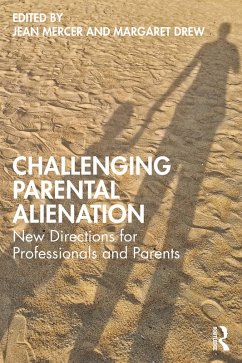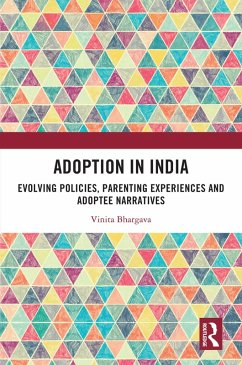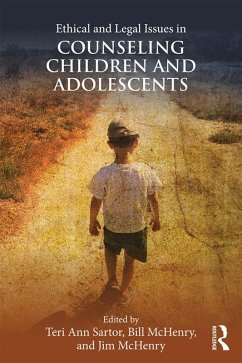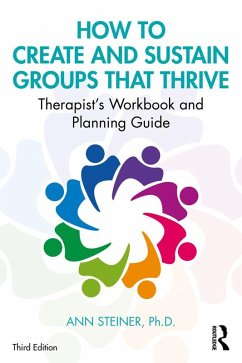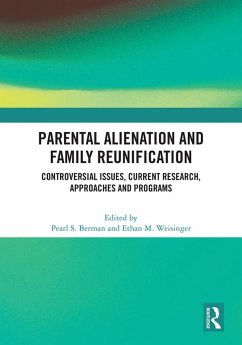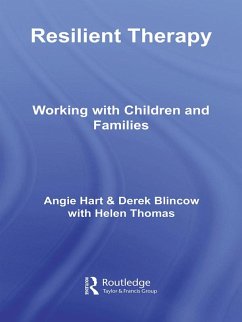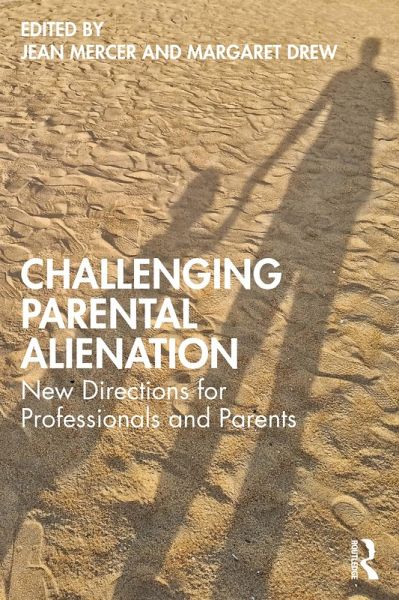
Challenging Parental Alienation (eBook, PDF)
New Directions for Professionals and Parents
Redaktion: Mercer, Jean; Drew, Margaret
Versandkostenfrei!
Sofort per Download lieferbar
32,95 €
inkl. MwSt.
Weitere Ausgaben:

PAYBACK Punkte
16 °P sammeln!
This book addresses the concept of parental alienation - the belief that when a child of divorced parents avoids one parent, it may be because the preferred parent has persuaded the child to do this. It argues against the unquestioning use of parental alienation concepts in child custody conflicts.Increasing use of this concept in family courts has led at times to placement of children with abusive or violent parents, damage to the lives of preferred parents, and the use of treatments that have not been shown to be safe or effective. The 13 chapters cover the history and theory of "parental al...
This book addresses the concept of parental alienation - the belief that when a child of divorced parents avoids one parent, it may be because the preferred parent has persuaded the child to do this. It argues against the unquestioning use of parental alienation concepts in child custody conflicts.
Increasing use of this concept in family courts has led at times to placement of children with abusive or violent parents, damage to the lives of preferred parents, and the use of treatments that have not been shown to be safe or effective. The 13 chapters cover the history and theory of "parental alienation" principles and practices. Methodological and research issues are considered, and diagnostic and treatment methods associated with "parental alienation" beliefs as well as those recommended by research and ethical evidence are analyzed. The connections of "parental alienation" with gender and domestic violence issues are discussed as are the experiences of individuals who have experienced "parental alienation" treatments. The book argues that "parental alienation" principles and practices should be avoided by family courts, in the best interests of children in custody disputes.
This book will be useful reading for lawyers, judges, children's services workers including social workers, child protection court workers, and mental health professionals involved in child custody decisions.
Increasing use of this concept in family courts has led at times to placement of children with abusive or violent parents, damage to the lives of preferred parents, and the use of treatments that have not been shown to be safe or effective. The 13 chapters cover the history and theory of "parental alienation" principles and practices. Methodological and research issues are considered, and diagnostic and treatment methods associated with "parental alienation" beliefs as well as those recommended by research and ethical evidence are analyzed. The connections of "parental alienation" with gender and domestic violence issues are discussed as are the experiences of individuals who have experienced "parental alienation" treatments. The book argues that "parental alienation" principles and practices should be avoided by family courts, in the best interests of children in custody disputes.
This book will be useful reading for lawyers, judges, children's services workers including social workers, child protection court workers, and mental health professionals involved in child custody decisions.
Dieser Download kann aus rechtlichen Gründen nur mit Rechnungsadresse in A, B, BG, CY, CZ, D, DK, EW, E, FIN, F, GR, HR, H, IRL, I, LT, L, LR, M, NL, PL, P, R, S, SLO, SK ausgeliefert werden.





